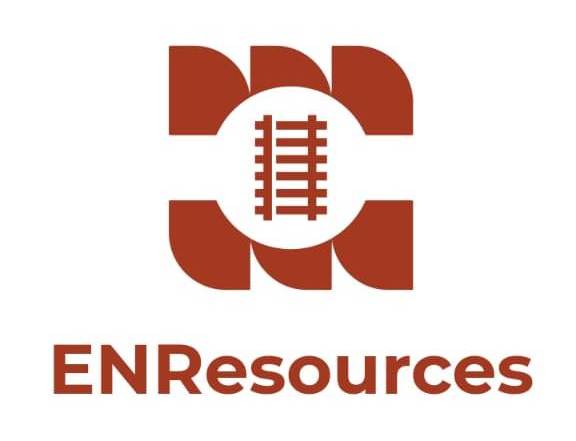
Photo by Christina @ wocintechchat.com on Unsplash
As the world becomes increasingly globalized, more and more international students are choosing to pursue their education in the United Kingdom. While the UK offers a wealth of opportunities, it is not without its challenges, particularly when it comes to finding employment.
In this context, it is important to understand the challenges faced by international students in the UK job market, the employability skills required for career readiness, and effective strategies to improve employability and career readiness. In this article, we will explore each of these points in detail, providing students with the knowledge and tools they need to succeed in their careers. International students in the UK face several challenges when it comes to finding employment in the UK job market. According to Hegarty (2014), language barriers, cultural differences, and a lack of familiarity with UK job market practices are some of the major challenges faced by international students. To begin with, language barriers can make it difficult for students to communicate effectively during job interviews, which can affect their chances of securing employment.
Additionally, cultural differences, such as differences in working practices, can make it hard for international students to understand the expectations of UK employers. Furthermore, the lack of familiarity with UK job market practices, such as networking and job application processes, can put international students at a disadvantage compared to their UK counterparts. In addition to these challenges, international students are also faced with visa restrictions that limit their working hours, making it harder for them to gain the necessary work experience and skills to compete in the job market. Therefore, it is crucial that UK employers and universities work together to support international students in navigating these challenges and creating a more inclusive job market.

Photo by Akson on Unsplash
In the current employment landscape, career readiness has become an increasingly important concept. Employability skills are crucial for individuals to thrive in the competitive job market, and in the UK, employers are looking for candidates with a range of skills beyond just academic qualifications.
According to Jackson, Sibson, and Riebe (2013), “employability skills are defined as the transferable skills needed for success in the workplace” (p. 1). These skills include communication, teamwork, problem-solving, time management, and leadership, among others. Employers value these skills because they enable individuals to work effectively in teams, communicate ideas clearly, and adapt to changing circumstances. Additionally, possessing these skills can enhance an individual’s chances of securing employment and progressing in their career.
Therefore, it is essential for individuals to develop and demonstrate these employability skills to become career-ready. The UK government has recognized the importance of employability skills and has invested in programs to support the development of these skills in the workforce. For example, the government’s National Careers Service offers advice and guidance on employability skills and provides training opportunities for individuals. In conclusion, employability skills are essential for career readiness in the UK, and individuals must prioritize developing and demonstrating these skills to succeed in the competitive job market.
International students face numerous challenges when it comes to employability and career readiness. The literature suggests that effective strategies for enhancing employability and career readiness for international students include developing language and communication skills, acquiring cultural knowledge, engaging in work-integrated learning (WIL) experiences, and networking. Language and communication skills are fundamental to succeeding in any career, and international students need to develop these skills to be competitive in the job market (Cavanagh et al. 2015). Cultural knowledge is also crucial because it helps international students understand the cultural nuances of their host country’s workplace and interact more effectively with colleagues and clients. Work-integrated learning (WIL) experiences, such as internships, co-op programs, and volunteering, can provide international students with hands-on experience, networking opportunities, and exposure to the expectations and culture of the workplace (Cavanagh et al. 2015).
Finally, networking is an essential strategy for international students to improve their employability and career readiness. Building professional relationships with classmates, alumni, professors, and employers can open doors to job opportunities and provide valuable advice and insights into the job market (Cavanagh et al. 2015). By implementing these strategies, international students can improve their chances of finding meaningful employment and achieving their career goals.

In conclusion, employability skills and career readiness strategies are crucial for international students in the United Kingdom to ensure they are successful in their job search.
The UK job market is competitive, and international students often face additional challenges such as language and cultural barriers. However, by developing employability skills such as communication, teamwork, and problem-solving and utilizing career readiness strategies such as networking and internships, international students can increase their chances of securing employment in their desired field. It is important for universities and organizations to provide resources and support for international students to develop these skills and strategies to enhance their career prospects. By doing so, international students can not only achieve their personal career goals, but also contribute to the UK economy and society as a whole.
You can boost your career, showcase your skills and make a great first impression by creating an astonishing online CV and personal website, all for free at https://flowcv.com/invite/12smaotpoq. You can also generate a cover letter, email signature, and personal website for free through the FlowCV online platform.
About the Author

Emmanuel has over 20 years of experience as a freelance research writer, project manager, and business development professional. He has a strong background in delivering high-quality research-based content across various industries. His writing style is versatile, allowing him to adapt to different subjects and formats, including academic papers, market research reports, and business proposals. You can find inspiring educational and career resources in areas like career readiness, dissertation writing, employability skills, global entrepreneurship, and much more on his blog site.
Works Cited
- Cavanagh, J., Burston, M., Southcombe, A., & Bartram, T. (2015). Contributing to a graduate-centred understanding of work readiness: An exploratory study of Australian undergraduate students’ perceptions of their employability. The International Journal of Management Education, 13(3), 278–288.
- Hegarty, N. (2014). Where we are now the presence and importance of international students to universities in the United States. Journal of International Students, 4, 223–235.
- Jackson, D., Sibson, R., & Riebe, L. (2013). Delivering work-ready business graduates-keeping our promises and evaluating our performance. Journal of Teaching and Learning for Graduate Employability, 4(1), 2–22.


